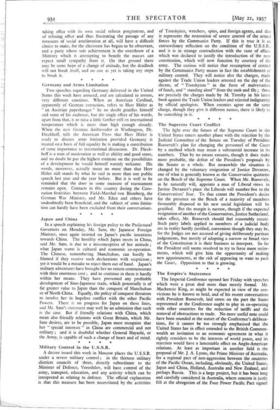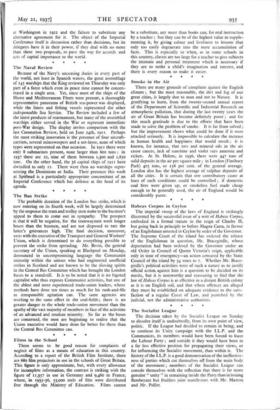The Empire's Statesmen The Imperial Conference opened last Friday with
speeches which were a great deal more than merely formal. Mr. Mackenzie King, as might be expected in view of the con- victions he is known to hold, and of his recent conversations with President Roosevelt, laid stress on the part the States represented at the Conference ought to play in co-operating with other countries for the reduction of tariffs and the removal of obstructions to trade. No more useful note could have been sounded at the outset of the Conference's delibera- tions, for it cannot be too strongly emphasised that the United States has in effect extended to the British Common- wealth an invitation to an economic agreement in what it rightly considers to be the interests of world peace, and its rejection would have a lamentable effect on Anglo-American relations. At least as important in another field is the proposal of Mr. J. A. Lyons, the Prime Minister of Australia, for a regional pact of non-aggression between the countries of the Pacific Ocean, including, obviously, the United States, Japan and China, Holland, Australia and New Zealand, and perhaps Russia. This is a large project, but it has been long and carefully considered in Australia, where concern is justly felt at the abrogation of the Four Power Pacific Pact signed at Washington in 1922 and the failure to substitute any alternative agreement for it. The object of the Imperial Conference itself is discussion rather than decisions, but its delegates have it in their power, if they deal with no more than these two proposals, to pave the way for accords and acts of capital importance to the world.















































 Previous page
Previous page